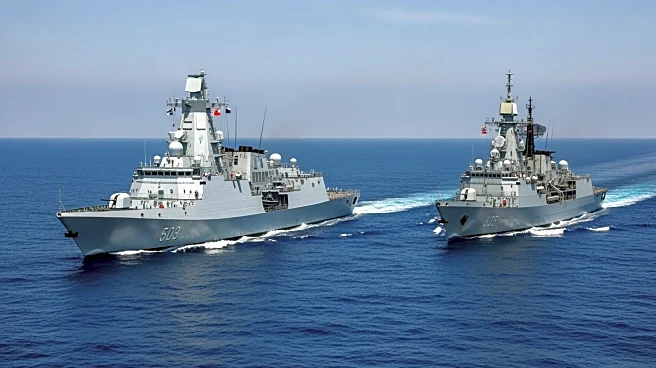What's Happening?
EUNAVFOR and the Indian Navy have successfully contained a pirate action group in the Indian Ocean after days of pursuit. The pirates, operating from a dhow, posed a threat to shipping in the region. The product tanker Hellas Aphrodite was boarded by
pirates on November 6, prompting the crew to hide in the citadel. The Spanish frigate ESPS Victoria responded, leading to the pirates abandoning the tanker. The pirate group had been active in the region, attempting to board several vessels, including the LNG carrier Al Thumama.
Why It's Important?
The containment of the pirate group is crucial for maintaining maritime security in the Indian Ocean, a vital route for global shipping. Pirate activities can disrupt trade and pose risks to the safety of seafarers. The successful intervention by EUNAVFOR and the Indian Navy demonstrates the importance of international cooperation in combating piracy. This incident also highlights the ongoing threat of piracy in the region, which had seen a decline but has resurged due to regional instability.
What's Next?
The situation remains ongoing as the pirates have refused to surrender, and the dhow's crew is still held hostage. Continued monitoring and potential further interventions may be necessary to resolve the situation. The international community, including shipping companies and maritime security organizations, will likely increase vigilance and security measures to prevent future incidents. Diplomatic efforts may also be pursued to address the root causes of piracy in the region.
Beyond the Headlines
The resurgence of piracy in the Indian Ocean reflects broader geopolitical and economic challenges, including instability in nearby regions such as Yemen. The incident underscores the need for sustained international efforts to address piracy and its underlying causes, such as poverty and lack of governance. Long-term solutions may involve development aid and capacity-building initiatives to improve regional security and economic conditions.
















